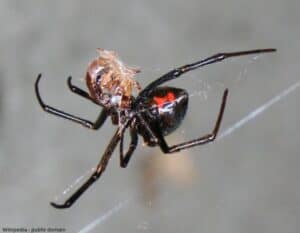The Problem of Overwatering
Most people, including your gardener who you pay hundreds even thousands of dollars every year to care for your lawn and landscape, over water. This is not only a waste of water but is also harmful to the environment. Excess nitrogen and chemicals contained in water not absorbed creates soil run off onto streets and into gutters where it pollutes our streams, rivers, and oceans.
Why do People Overwater their lawns
People seem to think a lawn should be watered every day or every other day at a minimum. This is absolutely the wrong way to water. In fact, watering daily or every other day is the very definition of over watering. You are not doing your lawn or your pocket book any favor by watering like this.
Why is Frequent Watering Bad for Your Lawn
Why is frequent watering like this so bad? First of all, your lawn does not need and cannot use that much water! In order for any landscape plant, including grass, to grow properly and be healthy oxygen must be present in the soil. When people over water the oxygen is pushed out of the pore space between the soil particles thus the plants roots are deprived of oxygen and slowly suffocate.
Grass that is over watered will eventually develop a shallow root system. When the root system is shallow your lawn is more susceptible to stress as well as diseases and insect infestations. Also, an over watered lawn is likely to have more weeds and wet soil attracts mosquitoes! Check out our page on Mosquito Control and the Zika Virus.
You can also take time to view this video on the negative impact of overwatering plants. It’s the same concept as overwatering lawns.
Simple Things To Prevent Over Watering – Less Watering Is Better
Among people who understand how to grow grass properly such as Golf Course Superintendents and Sports Turf Managers it is well known that you do not want to water light and frequently but rather deep and infrequently.
What does this mean? It means you want to water heavy, with a lot of water, and then not water again until you notice visual signs of the grass lacking water until you water again. Sign of stress include wilting and being dry and crispy to the touch. This could be any where from 3 to 10 days, if not more, depending on the weather.
When you water deep and infrequent, especially in the spring when root development is at its highest, you encourage the roots to chase the water and grow longer and deeper into the soil. During the warmer temperatures of summer this will help grass from getting heat stressed as the upper layers of soil lose their moisture, there is still moisture deeper down and the deeper root system of a deep and infrequently irrigated lawn can still reach.
Watering Guidelines
In order to water your lawn deeply, help prevent disease as well as run off it is important to follow these general guidelines.
- You do not want to water in the evening or early in the night. Why? Unless it is windy and dry out, the leaf blades will remain moist throughout the night. During certain parts of the year moisture on the leaf and soil surface creates the perfect environment for fungal diseases.
- Try to avoid watering during the hottest time of the day. Always water early in the morning, the best time would be between 3:00 am and 9:00 am.
- Even more importantly water you lawn in cycles. Watering in cycles simply means you water for 5 minutes then turn off the water and let that water soak in for 30 minutes or more and then water for another five minutes and so on. Depending on the soil, for example clay soil, the more cycles and less water per cycle is better because clay soil is heavier and does not absorb water as fast as a sandy soil. By watering in cycles you make more water available to the plant all the while reducing run off of excess fertilizer and chemicals to our ground water and oceans.
- What you can do to save water and help keep your lawn and plants looking there best, includes turning your irrigation off when it rains and adjusting your irrigation time based on the time of year and the weather.
- If your gardener is in charge of programming your irrigation clocks talk to him about adjusting your irrigation based on weekly weather forecasts and the season of the year. A really good gardener who cares about his customers should be adjusting the irrigation clocks every time he visits your house.
These simple tips will not only help the environment by saving water and reducing harmful chemical and nutrient run off. They will also help your lawn reach its full potential both in health and aesthetics. It will be lush, green, and beautiful.
Hearts Pest Management Can Help You With Your Lawn and Landscape Care
- Our lawn and turf management staff are trained on how to properly irrigate all types of landscapes from lawn to roses.
- Along with any of our bi-weekly and monthly maintenance programs we offer the service of programming you irrigation clocks for a nominal fee.
- In addition, we will offer you helpful tips on anything from how to improve your irrigation system to how to prune your plants and shrubs to look better.
- We also offer a full line of fertilizer and weed prevention programs that we will customize to your property.
Related Lawn Care Topics
- Using Wetting Agents to Reduce Water Bills
- Plant Growth Regulators in Lawn Care
- Lawn Pests
- Understanding Fertilizers


